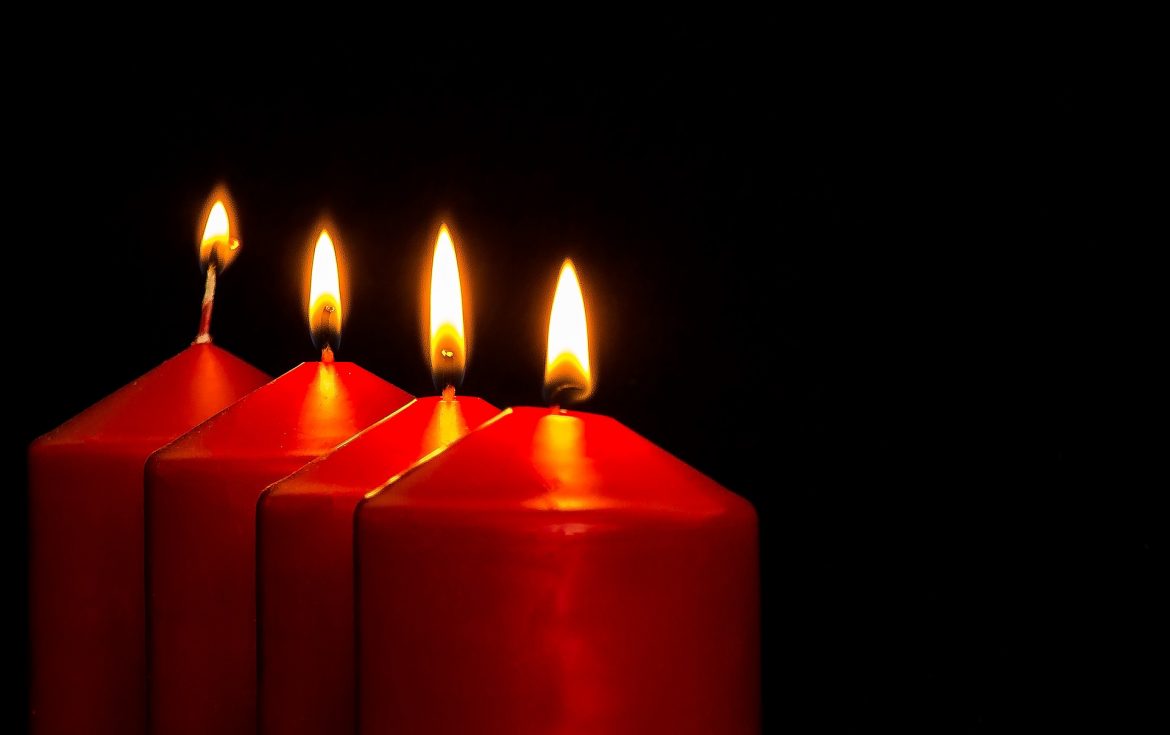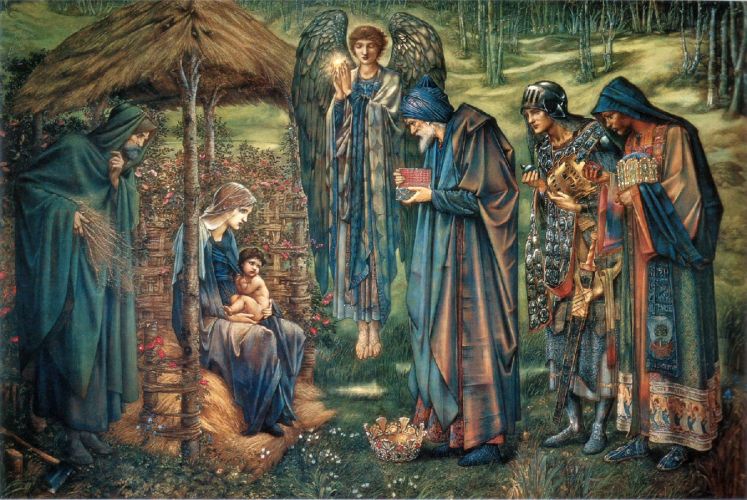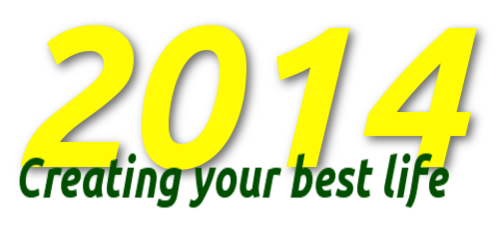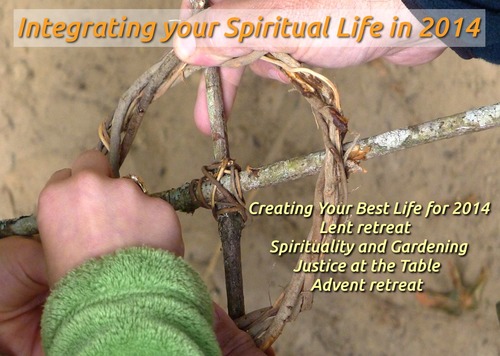Our Advent theme this last year, Coming Home: Uncovering Our Roots in the Advent Story. The topic was so popular that not only did Godspace provide daily reflections and podcasts but other websites too contributed to the series. All of us long for home, and whether we realize it or not, that longing is for more then the physical home in which we grew up. As Frederick Buechner says:
The Kingdom of God is where we belong. It is home, and whether we realize it or not, I think we are all of us homesick for it.
I hope that you have enjoyed the series. We would love to hear how it impacted your life this year. And in case you missed any of the posts here are all the links to the posts related to the topic.
Podcasts and Advent video:
First week of Advent with Tara Ward and Chelle Stearns listen here, Second week of Advent with Aaron Strumpel, Dwight Friesen, and Donna and Jim Mathwig listen here Third Week of Advent with Karen Ward, Tacey Howe Wispelwey and Mary September listen here Fourth Week of Advent with Lacey Brown and Tom Sine, listen here Advent Mediation Video Coming Home to the Story of God.
Also if you are still looking for resources for Advent and Christmas check out our Advent, Christmas and New Year resources and the Prayer cards and free downloadable Advent in a Jar available through our store
And if you missed any of the daily posts from Advent and Christmas:
- Stable, Inn or Welcoming Home, Where Was Jesus Born and Why Does it Matter?
- Peace Dancing by Esther Hizsa
- Mary and Mindfulness by Kristin Carroccino
- Advent is All About Light by Kate Kennington Steer
- A Summertime Advent by David Bayne
- Pancha Rathas by Amanda Geers
- Is there Room for Jesus to Find a Home in My Heart – Christine Sine
- Wait, Hope, See by Kimberlee Conway Ireton
- Tis the Season of Joy or is It – Christine Sine
- Coming Home by Alex Tang
- Finding Home and Homes by Lynne Baab
- What is the Future You Want to Come Home to by Tom Sine?
- Where’s Home by Andy Wade
- Coming Home to the Kingdom of Love – Will We Be Comfortable – Christine Sine
- Bearing the Joy Light by Kimberlee Ireton Conway
- Coming Home by Paula Mitchell
- Coming Home – the Story God is Giving Me Through Infertility Andrea Frankenfeld
- …And Moved Into the Neighborhood by Jeri Bidinger
- It Has Come to this by Dave Timmer
- Coming Home to the One Whose Face the Whole World Longs to See– Christine Sine
- The God Who Is Come by Beth Stedman
- Welcome Home by Margaret Trotman
- Homesick For A Place We’ve Never Been by Sean Gladding
- A Prayer for Christmas Eve
- A Litany for the Christmas Season
- Let Sing and Rejoice – Christmas is not Over Yet
If you have just started to follow this series may like to watch our Advent meditation video too. The theme for this year’s Advent series Coming Home was also picked up by the December synchroblog which adds another great series of posts that you might like to check out.
-
- Jeremy Myers – It Sounds Like Christmas
- Nathan Kitchen – Coming Home
- Michelle at Moments with Michelle – Home
- Mallory Pickering – I’m Kind of Homesick
- Bobi Ann Allen – Coming Home
- J.A. Carter – Going Home
- Glenn Hager – Where the Adventure Begins
- Marta Layton – Can You Ever Come Home Again?
- Peggy at Abisomeone – Abi Has Finally Come Home For Christmas
- Amy Hetland – Coming Home
- Coffeesnob – Home
- Carol Kuniholm – Advent Three: Redefining Home
- Liz Dyer – Advent 2013 The Way Home
- Harriet Long – The Body and the Sacred: Coming Home
- Edwin Pastor Fedex Aldrich – Who I Was Made to Be
- Emkay Anderson – Homemaking
- Anita Coleman – At Home in the Kingdom of God
- Kathy Escobar – Mobile Homes (Not That Kind)
- Jennifer Clark Tinker – My Itinerant Home
- Doreen Mannion – Heart is Where the Home is
- Sarah Quezada – Coming Home with Tamales in Tow
- Loveday Anyim – Home is Where the Heart Belongs
I mentioned in my Saturday post The Making of Joy that I am reading Tattoos on the Heart: The Power of Boundless Compassion. The quote I referred to God’s joy is to love us, has revolved in my mind ever since and along with it The joy of the Lord is my strength (Psalm 5:11). I know that God wants me to live in joy and peace but for some reason the fact that God too lives in joy has escaped me. And that it is God’s joy, not my joy that gives me strength is earth shattering for me. I grow strong not because I am joyful but because who I am and what I do gives God joy.
This distinction is important for us. I just googled for images of the “laughing Christ” – there are only three paintings that I was shown. We tend to see God as a stern and unapproachable entity, one who is more likely to frown then to smile, more likely to criticize then express joy. Yet I think God is a joyful God, weighed down by the brokenness of our world, yes, but One who radiates joy inherently finding delight and fulfillment in all creation. “It is good” says God at the end of the creation story, a wonderful exclamation of joy, fulfillment and delight. That is who God is and who God intends us to be.
So what gives God joy? First as Greg Boyle says, God’s joy is grounded in the wonder of divine love for us. Just as a parent finds joy in their child because of the deep and abiding love they have for their child, so God loves us. And this love bond is something that can never be broken. Nothing will ever separate us from the love of God and the joy that God takes in looking on us as children.
Now don’t get me wrong, God does not delight in our brokenness or our sinfulness, but as every parent who has ever loved a straying child knows, the ache of love is always there ready to welcome and to embrace. The return of any prodigal child brings great joy to the heart of God. God does not delight in our suffering either, but I think that God does find joy in the ways that we use that suffering to deepen our faith and draw us closer to Christ.
There are other things too that I think God delights in. I think that creation itself gives God joy. If you have ever hiked above 10,000 feet (3,000 metres) you know the wonder of discovering wildflowers that only God usually sees and the awe of magnificent vistas only God delights in. Even just walking out in my garden admiring the plants, the flowers and the insects gives me a glimpse into the joy that God finds in all of creation.
God also delights in our commitment to the divine purposes. Whenever and wherever we commit ourselves to God’s dream for a world renewed, restored and made whole that too brings joy to the heart of God.
First our commitment to renewal in our own lives is a delight to our loving God. Every step we take along the journey towards wholeness I am sure brings joy and rejoicing to the heart of God. Every time we take a moment to acknowledge and draw close to the heart of God we bring God delight. Every time we express gratitude and thankfulness for the wonder of God’s gift of life and love we bring God delight.
Second our commitment to renewal in the lives of others through acts of justice, healing, sharing and compassion all delight the heart of our justice seeking, wholeness creating, generous God. God delights in the wholeness and completion of all human kind.
Third, our commitment to restoration of creation through our preservation and renewal efforts brings God joy. I think that destruction and pollution of God’s good earth grieves the heart of God more then we will ever realize. Our efforts to prevent and reverse this bring delight and joy to God’s heart.
So what do you plan to do this day, this season to bring delight and joy to the heart of God?
I am currently reading Tattoos on the Heart: The Power of Boundless Compassion. by Greg Boyle. It is a compelling book about a priest who works with gangs in L.A. His stories and rich spiritual insights are profoundly impacting me. At one point he comments; It is God’s joy to love us. What wonderful imagery with which to end the Christmas season which is also called the season of joy.
It also seems an appropriate time to share this video which was compiled from a collection of reflections on joy. Though it was conducted as an Advent exercise, the poem itself is meant for all seasons.
There are only a few more days to the Christmas season. Sunday evening we celebrate the Eve of Epiphany which is the twelfth and last day of Christmas. This is when we celebrate the revelation of Christ’s divinity and the ways that he both was and is still revealed in our world:
- First in the revelation to the Magi, gentile wise men, who, guided by the mysterious Star of Bethlehem, came to visit, and bowed down to acknowledge him as lord and king. Christ is revealed to all persons not just to the Jews.
- Second in his baptism by John. When the spirit of God descended on Jesus as a dove a voice from heaven proclaimed “This is my beloved Son, in whom I am well pleased”. This is one of the few occasions in the scriptures in which all three persons of the Holy Trinity are manifest together.
- Third through his first public miracle – the wedding of Cana when Jesus turned water into wine. The transformative power manifested in Jesus extends to all creation.
Over the weekend we will take down our Christmas tree and lights. We will pack away our advent wreath for another year and replace the poinsettias on our mantle. I always struggle with this because it seems that suddenly we replace the promise and joy of Christmas with a drab and uninviting plainness.
But there is no plainness to the season of Epiphany. This is a season in which we are encouraged to come and see, come and follow, go and tell others. As followers of Christ we are invited to reveal him to others so that they too might recognize him as Son of God and experience the hope and freedom that his message brings. I think that this is also a season to broaden our vision to remind ourselves of the many ways in which Christ is at work in our world – we need to look and listen for God’s voice and come and see the things that God is doing not jsut in our own churches and communities but also amongst the poor, amongst the oppressed, amongst the marginalized and ignored.
God is actively at work in our world if we will take the time to come and see, come and follow and go and tell others.
This is when I start to think about the need to get going with the spring garden. Heaps of catalogues arrive in the mail and my fingers itch to get down into the dirt and make something happen. It had not occurred to me before but this garden activity seems like a very appropriate one for the season of Epiphany, that season when we are all encouraged to get out into the world and tell others about the Saviour whose birth we have just celebrated.
Making something happen to bring new life into our world is the spirit of Epiphany. We are called out into the world not just to talk about Christ but to reveal him to others through our deeds and actions. The garden is one place in which I both connect to God and work to help others connect to God as well, but it is not the only place. One of the challenges I have been thinking about over the Christmas season is How do I reveal Christ to others through my life? I want this season to be a true epiphany for myself and those around me. Perhaps you too would like to take time this weekend to think about this.
Here are some other suggestions to ponder:
There are many different ways that you could reveal the message of hope to others during this season. Consider doing one of the following during the weeks of Epiphany
- Do you have new neighbours? Are there newcomers to your church? Invite them over for an evening to get better acquainted
- Is this an opportunity to reach out to people in your office or workplace? Consider providing breakfast for those you work with. If you are feeling particularly adventurous you might like to make this a weekly or monthly event.
- Is there a university close by with international students? Invite a small group of students home for lunch or dinner. This is a great way to get know about another culture and the students will be very eager to learn more about your culture and religious traditions.
- Is there a senior care facility near where you live? Take your children over for a visit. Get them to read a story or sing a song for the residents. Consider taking some of the elderly people out for a trip.
- Is there a special way in which your children could reach out to others at their school or play group? Talk to them about the Biblical story and ask them to come up with one way that they could reveal the hope of God the their playmates.
What are your expectations for the season of Epiphany?
God we have tasted of your goodness,
And bowed before the Prince of peace.
Let his radiance shine through us,
And out into your broken world.
As want and war increase,
Let us seek peace and pursue it.
With every breath and heartbeat,
May we become its messengers.
Inspire us,
Compel us to respond.
Justice, freedom, generosity,
Let them flow,
From us to others.
Show the world your face,
In us and through us,
As we bow before the mystery of your presence,
Immersed in silence.
I wrote this after listening to Pope Francis’s Christmas Eve message. Yes I know I am a little slow but this really is a great message to start the new year with. The cry in my heart is for the peace of Christ to be fully realized in our world and that is what Pope Francis talked about
I particularly love these quotes from his message:
I take up the song of the angels who appeared to the shepherds in Bethlehem on the night when Jesus was born. It is a song which unites heaven and earth, giving praise and glory to heaven, and the promise of peace to earth and all its people.
Prince of Peace, in every place turn hearts aside from violence and inspire them to lay down arms and undertake the path of dialogue.
Join me in not just praying for peace but in becoming God’s instruments of peace out into our world.
 A couple of years ago I wrote this series of articles on reading the scriptures. I have just reread what I wrote and realized how much I need to take my own advice. As well as that, I need to know how to focus my scripture reading. Too many of us suffer from what I call chronic randomness. We lack the discipline to really dig into the scriptures in a consistent way. And then when we get down to it, we find that there are thousands of Bible reading plans available these days so how do we choose.
A couple of years ago I wrote this series of articles on reading the scriptures. I have just reread what I wrote and realized how much I need to take my own advice. As well as that, I need to know how to focus my scripture reading. Too many of us suffer from what I call chronic randomness. We lack the discipline to really dig into the scriptures in a consistent way. And then when we get down to it, we find that there are thousands of Bible reading plans available these days so how do we choose.
I grew up on scripture union reading plans and they still provide some great resources, especially if you want to consistently read through the entire bible over a period of time.
Biblegateway too is a great place to go for daily readings with the same purpose.
Ligonier Ministries has an amazing variety of Bible reading plans available for download which follow this type of system.
A few years ago though Tom & I discovered the beauty of reading through the liturgical calendar and following the readings set out in the Book of Common Prayer. It has been very enriching for us as it integrates the OT and NT readings for each day. There is heavy emphasis on psalms and gospel readings. My one frustration is that not all books of the Bible are covered in the 3 year plan. There are in fact a number of sites that provide versions of this. Here are a few that I know of:
The Voice is a great source for the daily scriptures of the liturgical year. I download the yearly schedule at the beginning of the year.
Readings from the Book of Common Prayer
Presbyterian USA daily readings
Readings from the Worldwide Chapel of Ease
Northumbria Community Daily Offices
Daily Prayer with the Irish Jesuits
Daily Prayer from the Catholic Church in Australia
Sacredise – Loving God/Loving the World – lectionary readings and reflections from John Van Der Laar in South Africa.
And of course there are just as many apps available for downloading daily scriptures. Would love to hear from those who use these as to which you would recommend.
I suspect that your email box, like mine is full this morning or messages from 501 (c) 3 organizations that are hoping for an end of year donation. I know it is impossible to give to all those who bless your life over the year but as you consider your last minute gifts we do pray that you will consider the ministry of Mustard Seed Associates of which this blog is a part.
In 2014 we plan not just to continue providing liturgical resources, daily devotional reflections and theological insights but want to expand our work into on line retreats, and other resources. So many have told me this year that Godspace provides a lifeline for them. Others tell me it has stirred their imaginations to develop new practices that have deepened their faith. Still others say that this blog continues to inspire them to get involved in their neighbourhoods and reach out to God’s world wide community
Much of what we produce is provided for free but as you can imagine it is not produced for free. So if you use resources from this blog regularly, and if you want us to be able to expand our ministry please consider a small end of year gift or become a monthly subcriber to make that possible.
You can also support our ministry by attending events like our upcoming Creating Your Best Life for 2014 with Tom Sine on January 11th(at this stage only possible if you live in the Pacific NW) or by purchasing resources through the MSA website. We have quite a few events already lined up for the coming year with the opportunity to attend as single events or as a package deal Integrating your Spiritual Life in 2014.
Many blessings on you as we head into the new year. We do appreciate your ongoing encouragement and support.
As an Amazon Associate, I receive a small amount for purchases made through appropriate links.
Thank you for supporting Godspace in this way.
When referencing or quoting Godspace Light, please be sure to include the Author (Christine Sine unless otherwise noted), the Title of the article or resource, the Source link where appropriate, and ©Godspacelight.com. Thank you!







